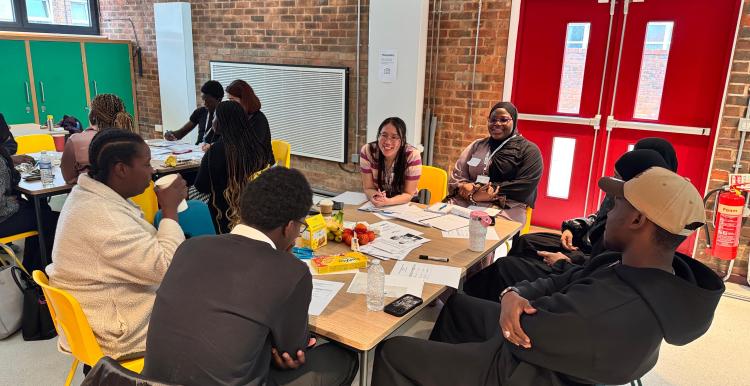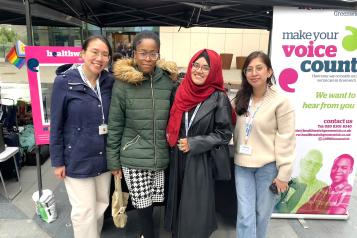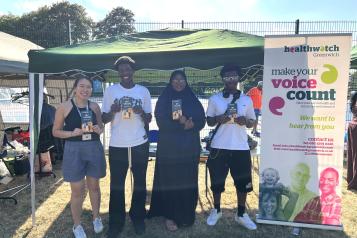Health access beyond schools: What young people told us

Our project exploring young people’s perceptions and experiences of the HPV vaccine, commissioned by the south east London Cancer Alliance (SELCA) has offered insight into how home-educated young people access essential health information and support, and what could help make that experience feel clearer and more relevant.
In Greenwich, 891 children were registered as homeschooled during 2023–24, including 298 new registrations. This marks Greenwich as having the fourth highest increase in homeschooling uptake among London local authorities.
As more families choose to educate their children at home, it becomes increasingly important to understand how these young people access the same health information and support that schools routinely provide. Young people we spoke to in Greenwich shared that, outside of school-based health programmes, access to health education and information often felt limited and inconsistent. Many said they relied on social media, family or friends for advice, but few felt confident that what they were hearing was accurate or trusted. Others described limited contact with health professionals. For some, GP appointments were rare, and when they did seek support, the experience often felt rushed or not youth-friendly. Many said they wished they had more time to ask questions or access a trusted space where they could discuss concerns that felt unclear or confusing. For those who were home educated, these challenges were even more pronounced. Without the additional touchpoints that schools provide, topics like HPV were unfamiliar, and the vaccination process itself felt daunting. They told us that access to classes or online platforms designed for the homeschooling community could make a significant difference, offering a way to learn about sexual health and wider wellbeing in a space that felt relevant and approachable.
While the Greenwich Immunisation Service offers catch-up programmes at community clinics throughout Greenwich, including for home-educated children, and shares information and broader support through their website and the boroughs Education Department channels, our discussions with young people suggest that these opportunities may not always reach them effectively.
When asked what would make a difference, young people spoke about trust and relatability. They wanted to hear from people who understood their experiences, such as youth-friendly health professionals, youth workers or peers who had received the HPV vaccine themselves. They said information should be shared in open, informal spaces where questions are welcomed and answered honestly, rather than in rushed or overly clinical settings. Digital content, too, was valued when it felt genuine, engaging and visible on the platforms they already use. Above all, they wanted clearer guidance about how to access vaccinations and health advice outside of school, presented in a way that feels relevant to their age and experience.
As home education becomes an increasing part of Greenwich’s education landscape, there is a growing opportunity, and responsibility, to rethink how health systems connect with families and young people beyond school settings. Addressing this means ensuring that communication and engagement around the HPV vaccine, and wider health support, are visible, accessible and designed with home-educated young people in mind. This calls for clearer signposting, more tailored information, and approaches developed with families, not just for them.

